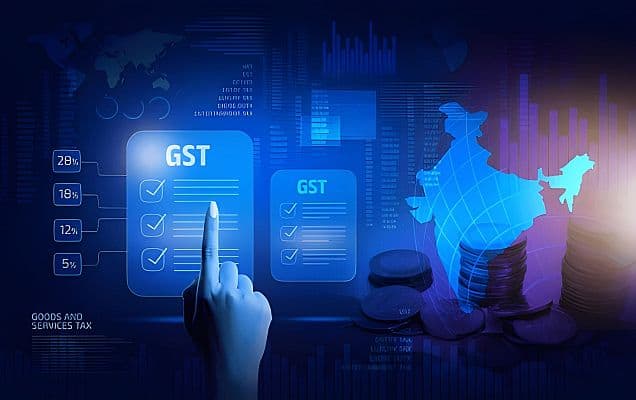Present in the program are my senior colleagues in the Union Cabinet Shri Rajnath Singh ji, Hardeep Singh Puri ji, Ajay Bhatt ji, Kaushal Kishore ji, Chief of Defence Staff General Bipin Rawat, Chiefs of three services, senior officers and other dignitaries, ladies and gentlemen.
In the 75th year of independence, we are taking an important step towards developing the capital of the country according to the needs and aspirations of the new India. This new Defence Office Complex will help our forces function more conveniently and effectively. I congratulate all the colleagues associated with the defenceservices for these new facilities.
Friends,
You all are aware that till now all the defence related work was being done from the hutments built during the Second World War. These hutments were then built to suit the needs of horse stables and barracks. In the decades after independence, such hutments were converted into the offices of the Ministry of Defence, Army, Navy and Air Force, and minor repairs were carried out from time to time. And if some higher officials were to come, a fresh coat of painting was done. And it went on like this. When I saw it closely, the first thought that came to my mind was how so many important army personnel work for the security of the country in such bad conditions. Why did our media in Delhi never write about this?A thought would come to my mind that such a place would naturally attract criticism that what the Indian government was doing? But I don't know, nobody took note of it. You are also well aware of the problems in these hutments.
Present in the program are my senior colleagues in the Union Cabinet Shri Rajnath Singh ji, Hardeep Singh Puri ji, Ajay Bhatt ji, Kaushal Kishore ji, Chief of Defence Staff General Bipin Rawat, Chiefs of three services, senior officers and other dignitaries, ladies and gentlemen.
In the 75th year of independence, we are taking an important step towards developing the capital of the country according to the needs and aspirations of the new India. This new Defence Office Complex will help our forces function more conveniently and effectively. I congratulate all the colleagues associated with the defenceservices for these new facilities.
Friends,
You all are aware that till now all the defence related work was being done from the hutments built during the Second World War. These hutments were then built to suit the needs of horse stables and barracks. In the decades after independence, such hutments were converted into the offices of the Ministry of Defence, Army, Navy and Air Force, and minor repairs were carried out from time to time. And if some higher officials were to come, a fresh coat of painting was done. And it went on like this. When I saw it closely, the first thought that came to my mind was how so many important army personnel work for the security of the country in such bad conditions. Why did our media in Delhi never write about this?A thought would come to my mind that such a place would naturally attract criticism that what the Indian government was doing? But I don't know, nobody took note of it. You are also well aware of the problems in these hutments.

Today, when we are engaged in modernizing the military might of the 21st century India in every respect, equipping (our armed forces) with modern weapons, modernizing the border infrastructure, ensuring better coordination through the Chief of Defence Staff of the forces, speeding up the procurement of the requirements of the army which used to go on for years,then how can this be possible that the work related to the defence and security of the country continues through decades-old hutments. Therefore, it was necessary to change these conditions. I would also like to point out that those who were criticizing the Central Vista project would remain silent on the complex being developed for more than 7,000 army officers, because this is also a part of the Central Vista project. They knew that their intention to spread confusion and lies would be exposed if they talked about this complex. But the country is watching our intentions behind this Central Vista. These modern offices at KG Marg and Africa Avenue will go a long way in effectively carrying out all the work related to the security of the nation. This is a big and important step towards the creation of a modern defence enclave in the capital. Every necessary facility has been provided for our jawans and employees in both the complexes. And I also want to tell the countrymen about what was going on in my mind.

When you gave me the privilege to serve the country in 2014, I knew that the condition of government offices is not good. The condition of Parliament House was also not good. I could have done this work (of Parliament) in 2014, but I chose not to do it. The first thing I decided was to build a memorial for the brave soldiers of our country, who fought for India’s pride and were martyred for the motherland. The work which should have been done soon after independence began after 2014. It is only after its completion that we took up the work of the Central Vista to improve our offices. We first thought of the brave martyrs, the brave soldiers of our country.

Friends,
Along with this construction work that has taken place for official use, residential complexes have also been built here. Necessary arrangements like accommodation, kitchen, mess, modern facilities related to treatment have also been developed for the jawans who are engaged in the important security work 24x7. Proper connectivity has been kept in mind for thousands of retired soldiers who come here from all over the country for their pending official work so that they do not face much trouble. The best part is that the buildings that have been built are eco-friendly and the ancient look of the buildings, which is an identity of the capital, has been retained. Fascinating artworks of artists of India and symbols of AatmaNirbhar Bharat have been placed in the complexes here. By retaining the vitality of Delhi and protecting its environment, everyone will experience the modern form of our cultural diversity here.
Friends,
It has been more than 100 years since Delhi became the capital of India. In this period of more than 100 years, there has been a huge imbalance as far as the population and other conditions are concerned. When we talk about the capital, it is not just a city. The capital is a symbol of the thinking, determination, strength and the culture of that country. India is the mother of democracy. Therefore, the capital of India should be such that in the center of which should be its people. Today, when we are focusing on Ease of Living and Ease of Doing Business, modern infrastructure plays an equally important role in this. This spirit is at the core of the work that is being done on Central Vista today. The details of this in the website linked to Central Vista which was launched today are on the display.

Friends,
Over the years, a lot of emphasis has been given to new constructions in Delhi keeping in mind the aspirations of the capital, whether there are new houses for elected representatives from all over the country, efforts to cherish the memories of Ambedkar ji, or many new buildings. It also includes national monuments related to the honor of our army and our martyrs. After so many decades, the national memorials for the martyrs of army, paramilitary forces and police force are making Delhi proud today. And an important feature is that most of them were completed before the stipulated time. Otherwise,delays are synonymous with the governments. The delay of 4-6 months is considered natural. We have made sincere efforts to introduce a new work culture in the government so that the country's wealth is not wasted; work is done in a time-bound manner and in less than the projected expenditure. We are emphasizing professionalism and efficiency and a great example of efficiency in this approach is evident today.
The Defence Office Complex has been completed in a record 12 months instead of 24 months i.e., 50 percent time has been saved. That too at a time when there were all kinds of challenges from labour shortage to others due to Corona. Hundreds of workers got employment in this project during the Corona period. All the labour companions, engineers, employees and officers deserve appreciation. The entire country congratulates all the people who have contributed to this sacred work of nation building at a time when there was so much fear of Corona and there were question marks between life and death. It shows that when the policy and intention is clear, the will is strong, the efforts are sincere, then nothing is impossible, everything is possible. I am sure, the construction of the new Parliament building of the country, as Hardeepji was confidently saying, will be completed within the stipulated time.
Friends,
The new construction technology has also played a big role in the rapid pace of construction. Instead of the conventional RCC construction, light gauge steel frame technology has been used in the Defence Office Complex. These buildings are safer from fire and other natural calamities due to new technology. With the construction of these new complexes, the annual cost of maintaining the old hutments spread over dozens of acres will also be saved. I am happy that there is focus on modern construction technology not only in Delhi but also in other cities of the country to develop smart facilities and to provide pucca houses to the poor. The ongoing lighthouse project in six cities of the country is a big experiment in this direction. New start ups are being encouraged in this sector. The speed and scale at which we have to transform our urban centers is possible only through the widespread use of new technology.

Friends,
These defence office complexes are a reflection of yet another change in the work culture and priority of the government. The priority is to utilize the available land. And it is not only the land, it is our belief and it is our endeavor that there should be optimum utilization of whatever resources or natural resources that we have. Unnecessary wastage of such wealth is no longer appropriate for the country and as a result of this approach emphasis is being laid on moving ahead with perfect planning on proper and optimum utilization of the lands held by different departments of the government. The new campuses have been built in about 13 acres of land. The countrymen should listen to this in the backdrop of those who keep on criticizing our every work. In such an important place like Delhi, these hutments were built over 62 acres of land. Now instead of 62 acres, the best and modern arrangements have been created in just 13 acres of land. This is the utilization of the country’s wealth. That is about 5 times less land has been used than before for such large and modern facilities.
Friends,
This mission of building a new self-reliant India in this epoch of independence, i.e. in the next 25 years, is possible only with the efforts of everyone. The new buildings support the initiative of the country to increase the productivity and efficiency of the government and instill confidence to realize that resolution. Be it a Common Central Secretariat, inter-connected conference halls, accessible connectivity through public transport like the metro, all these will go a long way in making the capital people friendly. With this wish that all of us achieve our goals rapidly, I once again wish you all the very best!
Many thanks!













